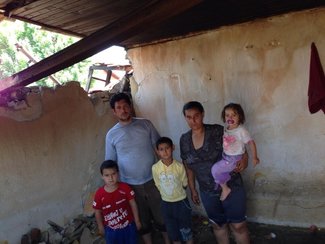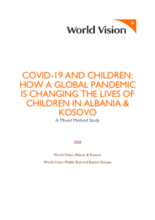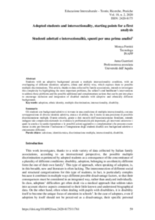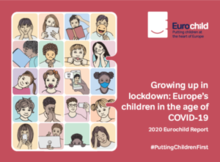

Displaying 51 - 60 of 523
These Practitioner Guidance Papers share the approaches of five Family for Every Child members in adapting existing helplines or setting up new ones during the COVID-19 pandemic
This cross-national study compares and contrasts how two states- one in the U.S. (Illinois) and one in Spain (Catalonia)—support care leavers as they transition into adulthood.
The purpose of this study was to test the feasibility of an intervention created to stimulate the development of children under the age of seven, living in an institution for children without parental care in Bosnia and Herzegovina. The aim of the intervention was to match each child with one volunteer, trained to deliver three hours per week of individually tailored, play-based activities, for a minimum of one year.
This study builds upon and enhances existing knowledge by exploring the moderating role of social support from educators in residential care and the association between perceived rights and psychological difficulties.
This webinar heard from three of Family for Every Child's member organisations about their programmes to both integrate and reintegrate children on the move.
In this consultation,10 girls and 10 boys in Albania and Kosovo were interviewed and shared their views and experiences of the outbreak of COVID-19. Additionally, 515 girls and boys were surveyed to understand the impact of the pandemic on their lives.
This article, thanks to data collected by family associations, intends to investigate multiple intersectionality of students with adoptive background by highlighting the most important problems, the school’s and healthcare’s interventions to address those problems and the possible additional and complementary actions that can be put into place to encourage inclusion and integration of disabled students with adoptive and ethnically different backgrounds.
This webinar was part of Eurochild’s breakfast webinars to mark World Children’s Day 2020. The webinar looked at how the European Child Guarantee initiative can help address the growing challenge of child poverty, particularly the deepened economic divides that have resulted from the COVID-19 pandemic, and brought the perspective of the Spanish government, which has made the fight against child poverty a particular priority.
This report reflects on the effects of the coronavirus pandemic on children. It compiles information gathered from 25 countries across Europe, and provides recommendations for improving public policies in the short and long-term to support better outcomes for children and families, including children in alternative care or at risk of separation.
In this study, the authors aimed to analyze the potential risk and protective factors for parents’ and children’s well-being during a potentially traumatic event such as the COVID-19 quarantine.




